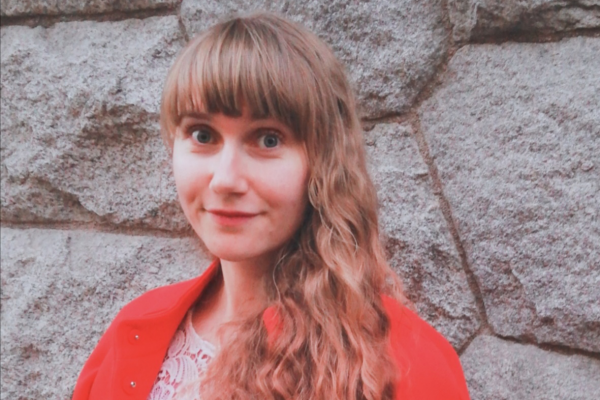
Scholarship in modernist literary studies tends to privilege urban spaces while excluding rural regions from mappings of world literature. Regionalist writing has been both effeminized as a genre and seen as contrary to the transnational nature of modernism, leaving little consideration for the role of the countryside in modernity. Iida Pöllänen's talk draws from her dissertation project where she analyzes how the countryside functioned as a place for authors such as Willa Cather, Hagar Olsson, and Nella Larsen to both critique the uneven development of modernity as well as to provide alternative visions of future communities. These authors, who wrote about linguistic and ethnic minorities located in the American and Northern European countryside, employed rural regions as sites for considering political questions of immigration, (trans)nationality, and community, and thus their texts disrupt the urban focus of much of modernist studies.
Pöllänen's talk will focus on a part of her project where she considers Willa Cather's The Song of the Lark and its use of omniscient narration in representations of immigrant communities. Modernist writing has typically been theorized as a movement that turned away from omniscient and reliable narration of the realist tradition towards narration that is marked by subjectivity and fragmentation. Whereas recent scholarship has proposed that omniscient narration has made a comeback in contemporary literature, Pöllänen argues that omniscience never vanished and in fact stayed alive within the modernist movement through regional modernism. In her talk, Pöllänen asks what the purposes and effects of omniscience are in some regional texts, and how omniscience can be seen as a narrative strategy that is used to discuss community-building in modern times.
Bio: Iida Pöllänen is a Ph.D. Candidate and Fulbright scholar in Comparative Literature at the University of Oregon, where she also teaches for the Departments of Comparative Literature, English, and Scandinavian. In her dissertation, funded by the Oregon Humanities Center Dissertation Fellowship, she works on the intersections of American and Nordic twentieth-century prose with a methodological focus on regional modernist studies and narrative theory.
